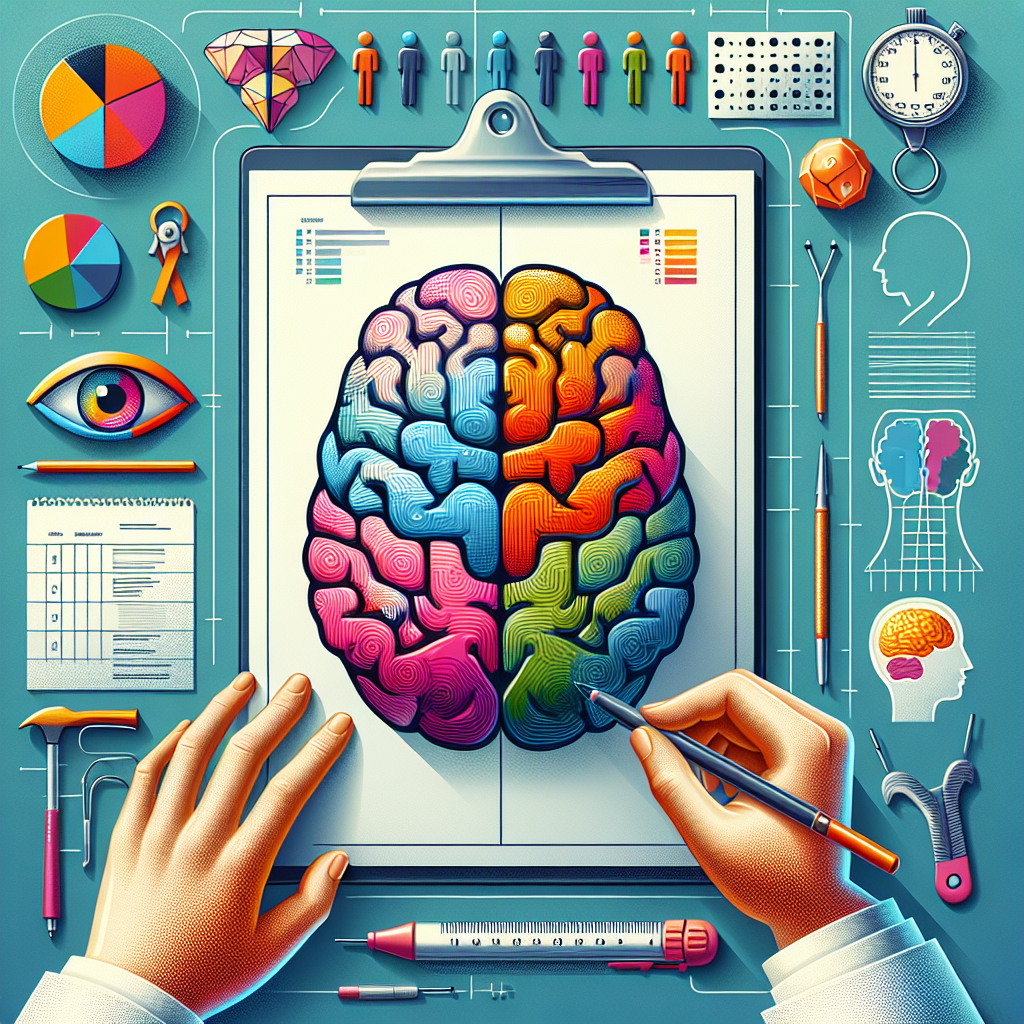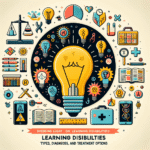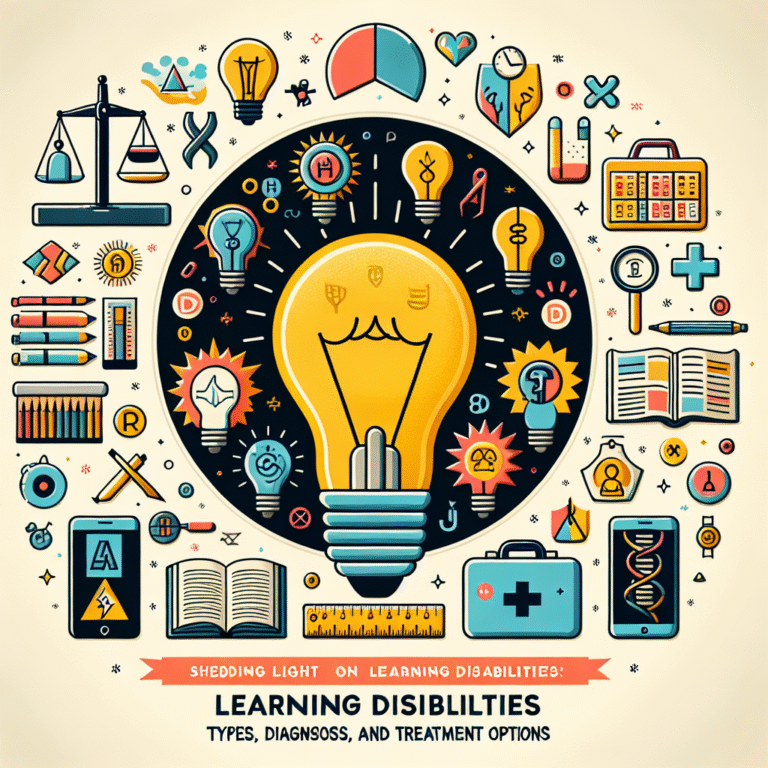
Introduction
Imagine you’re driving your car, but your dashboard is giving you mixed signals. The check engine light is blinking, the oil gauge is fluctuating, and the speedometer seems stuck. You wouldn’t just continue driving haphazardly; you’d seek a mechanic to diagnose the underlying problems before they escalate. Similarly, our brain operates as a complex system, and when symptoms arise—be it memory issues, attention deficits, or emotional disturbances—neuropsychological assessments serve as our cognitive diagnostic tools.
In today’s fast-paced world, understanding neuropsychological assessments is vital for both mental health professionals and those concerned about cognitive functioning. These assessments provide critical insights that can shape effective treatment plans, guiding individuals toward better cognition and emotional well-being. This article delves into the rich terrain of neuropsychological assessments, unpacking their components, functions, case studies, and the indispensable role they play in healthcare.
What are Neuropsychological Assessments?
Neuropsychological assessments encompass a collection of tests designed to evaluate various cognitive functions, including memory, attention, problem-solving, language, and emotional regulation. They are invaluable tools for understanding brain functions and diagnosing a range of neurological and psychological conditions.
Key Components of Neuropsychological Assessments
Clinical Interview: The foundation of any assessment, where the clinician gathers personal and medical history, presenting concerns, and any other relevant information.
Standardized Tests: These objective measures yield quantifiable data about cognitive abilities. Commonly used tests include:
- The Wechsler Adult Intelligence Scale (WAIS)
- The Rey-Osterrieth Complex Figure Test
- The Boston Naming Test
Behavioral Observations: Clinicians observe responses, attitudes, and behaviors during testing, providing qualitative data that might not be captured by standardized tests.
- Feedback Session: After testing, discussing results with the individual and their family can provide context and understanding of the findings.
Table 1: Common Neuropsychological Tests and Their Functions
| Test Name | Cognitive Domain Assessed | Typical Use |
|---|---|---|
| WAIS | Intelligence | General cognitive ability |
| Rey-Osterrieth Complex Figure Test | Visual-spatial abilities | Memory and planning |
| Boston Naming Test | Language | Language production and retrieval |
The Importance of Understanding Neuropsychological Assessments
Being well-versed in neuropsychological assessments can significantly impact diagnosis and treatment. Here are some reasons why:
1. Early Detection of Cognitive Impairments
Neuropsychological assessments can identify cognitive impairments before they manifest into observable symptoms. For example, subtle memory deficits can be detected in aging individuals before they progress to significant conditions like Alzheimer’s Disease. This early detection enables timely intervention, crucial in preserving cognitive function.
2. Tailored Treatment Plans
Every individual presents a unique cognitive profile. By understanding neuropsychological assessments, clinicians can craft personalized treatment strategies that mesh well with a patient’s strengths and weaknesses. For instance, a patient with executive functioning deficits may benefit from cognitive-behavioral therapy tailored to improve organizational skills.
3. Monitoring Progress
Regular assessments can serve as benchmarks to gauge the effectiveness of interventions over time. Clinicians can refine treatment plans based on empirical data, adapting as necessary for optimal outcomes.
Real-World Applications: Case Studies in Neuropsychological Assessments
Case Study 1: The Memory Puzzle
Client: A 68-year-old female presenting memory complaints.
Assessment Tools Used: WAIS, Rey-Osterrieth Complex Figure Test, clinical interview.
Analysis:
Following a thorough clinical interview, the client demonstrated difficulty remembering recent events but was able to recall vivid details from her youth. Neuropsychological testing revealed significant discrepancies in verbal memory and visual-spatial processing abilities. Recognizing these cognitive discrepancies led to a diagnosis of Mild Cognitive Impairment (MCI).
Outcome: The clinician crafted a treatment plan that combined cognitive training exercises with lifestyle changes, focusing on enhancing memory through mental and physical engagement.
Case Study 2: The Attention Challenge
Client: A 25-year-old male with suspected Attention-Deficit/Hyperactivity Disorder (ADHD).
Assessment Tools Used: Continuous Performance Test (CPT), self-report questionnaires, behavioral observations.
Analysis:
Testing indicated significant attention deficits, alongside elevated impulsivity scores. This patient’s struggle with attention in both academic and occupational settings was affirmed by results from neuropsychological assessments.
Outcome: A multifaceted treatment plan involving medication, behavior modification techniques, and cognitive remediation was developed, leading to noticeable improvements in attention and overall functioning.
Table 2: Impact of Neuropsychological Assessments on Treatment Outcomes
| Assessment Focus | Treatment Adaptation | Outcome |
|---|---|---|
| Memory issues | Cognitive rehabilitation, memory strategies | Enhanced recall and daily function |
| Attention deficits | Behavioral strategies, medication | Improved academic performance |
| Emotional dysregulation | Therapeutic interventions, coping skills training | Better emotional regulation and coping |
How to Prepare for a Neuropsychological Assessment
Understanding neuropsychological assessments not only involves knowledge of their significance but also preparation. Here are actionable insights for individuals considering an assessment:
Gather Background Information: Document any pertinent medical history, medications, and previous evaluations.
List Observations: Note specific challenges over time to convey clear examples to the clinician.
- Ask Questions: It’s crucial to have an open dialogue; inquire about the purpose, process, and potential outcomes of the assessment.
Frequently Asked Questions (FAQs)
1. What can I expect during a neuropsychological assessment?
During the assessment, you will engage in various tasks designed to evaluate different cognitive functions. The process may take several hours, and you will also participate in a clinical interview to provide background context.
2. How long do the results take?
Typically, results can be expected within a week or two, depending on the clinician’s workload and the complexity of the assessment.
3. Are neuropsychological assessments only for children?
No, neuropsychological assessments are beneficial for individuals of all ages, from children to the elderly. They can address developmental issues, brain injuries, or cognitive decline in older adults.
4. Can neuropsychological assessments influence treatment plans?
Absolutely! Understanding neuropsychological assessments helps clinicians tailor treatment plans specifically to an individual’s cognitive strengths and weaknesses, enhancing overall effectiveness.
5. Do I need a referral for a neuropsychological assessment?
In most cases, a referral from a healthcare provider is required. However, you can check with neuropsychologists in your area regarding their specific intake procedures.
Conclusion
Understanding neuropsychological assessments is essential for unlocking cognitive insights and crafting effective treatment plans. By utilizing these powerful diagnostic tools, clinicians can precisely identify cognitive impairments and tailor interventions that enhance individual outcomes.
As our understanding of neuropsychology evolves, so does the potential for enriched, personalized care. If you or someone you know is experiencing cognitive difficulties, seeking a comprehensive neuropsychological assessment may be the first step toward recovery and improved quality of life. Embrace the journey of understanding, and take proactive steps in harnessing the power of your cognitive health.
In the complex landscape of cognitive health, knowing and leveraging neuropsychological assessments can transform lives, providing clarity and direction in both diagnosis and treatment strategies. With everything we’ve explored, remember that every cognitive puzzle has a solution; understanding neuropsychological assessments is the key to unlocking that potential.

















